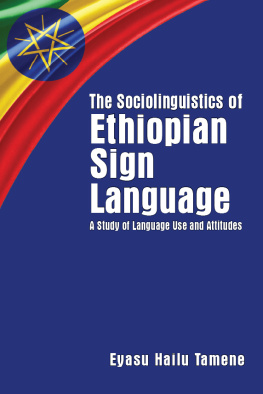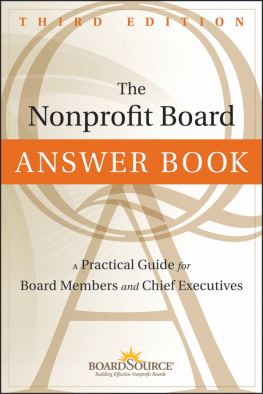Gallaudet University Press
Washington, DC 20002
http://gupress.gallaudet.edu
2020 by Gallaudet University
All rights reserved
Printed in the United States of America
ISBN 9781-944838713 (paperback)
ISBN 9781-944838737 (ebook)
Library of Congress Cataloging-in-Publication Data
Names: Bravin, Philip W., author.
Title: Controlling our destiny: a board members view of Deaf President Now / Philip W. Bravin.
Description: Washington, DC: Gallaudet University Press, [2020] | Includes bibliographical references. | Summary: An insiders view of the events that lead up to one of the most crucial moments in American deaf history: the 1988 Deaf President Now (DPN) protests at Gallaudet University Provided by publisher.
Identifiers: LCCN 2020030842 (print) | LCCN 2020030843 (ebook) | ISBN 9781944838713 (paperback ; alk. paper) | ISBN 9781944838737 (ebook)
Subjects: LCSH: Gallaudet UniversityStudent strike, 1988. | Gallaudet UniversityPresidents. | College presidentsSelection and appointmentUnited States. | Student strikesWashington (D.C.) | DeafEducation (Higher)United States.
Classification: LCC HV2561.W18 G327 2020 (print) | LCC HV2561.W18 (ebook) | DDC 378.753dc23
LC record available at https://lccn.loc.gov/2020030842
LC ebook record available at https://lccn.loc.gov/2020030843
This paper meets the requirements of ANSI/NISO Z39.481992 (Permanence of Paper).
Cover design by Eric C. Wilder.
Contents
Foreword
I. King Jordan
Preface
Acknowledgments
Introduction
P ART O NE : T HE S EARCH FOR A N EW P RESIDENT
Remembering 170 Years of Oppression
From Kendall Green to the Work World and Back to My Alma Mater
Setting the Presidential Precedent: 18641983
My Initial Years on the Board of Trustees (19811986)
Laying the Foundation for the Search
Starting the Engines: The Search Begins
Narrowing Down the Pool
The Interviews
Selecting the President amid Mounting Public Pressure
P ART T WO : T HE W EEK THE W ORLD H EARD G ALLAUDET
The Finale that Never Was a Finale: March 56
Monday, March 7
Tuesday, March 8
Wednesday, March 9
Thursday, March 10
Friday, March 11
Saturday, March 12
Sunday, March 13
Monday, March 14
E PILOGUE
S UPPLEMENTAL M ATERIALS
Notable Quotes about DPN
Controlling Our Destiny: An Unpublished Paper
Cast of Characters
Deaf President Now! A Ballad by Robert F. Panara
You Have to Be Deaf to Understand by Willard J. Madsen
The Dr. Edward C. Merrill Jr. Papers
Bibliography
About the Author
In Controlling Our Destiny, Philip W. Bravin describes in great detail, and in close to chronological order, what happened throughout the search for Gallaudets seventh president during a momentous week in March of 1988. Phil details the discussions and decisions made by the search committee and the board, as they narrowed the pool of candidates and finally voted to name a hearing person, Dr. Elisabeth Zinser, as president, and his experiences during the weeklong protest after that.
At the end of the week, after Dr. Zinser had resigned and the board voted to name me Gallaudets eighth president and first deaf president, the Deaf President Now (DPN) movement, which had succeeded beyond what anyone could have envisioned, was, for all intents and purposes, over.
On the morning of Monday, March 14, Gallaudets campus was peaceful but energized. Students and faculty sensed that the world had changed for deaf people, and to ensure that the changes going forward continued to be positive, there needed to be support for the first deaf president.
Early that morning, Greg Hlibok, who was elected president of the Gallaudet Student Body Government (SBG) shortly before DPN; Phil Bravin, who was elected chair of the Gallaudet board the day before; and myself, who was appointed president at the same time, met in my office in the Edward Miner Gallaudet (EMG) building. As we chatted informally to start the meeting, Greg pointed out that it was surely the first time in the 124-year history of the university that the SBG president, the university president, and the chair of the board could communicate clearly and easily without the need for an American Sign Language (ASL) interpreter. That simple fact hit the three of us like a ton of bricks. It was simple, yes, but it was profound beyond anything else we could have said.
Much of what Phil includes in this book is new to me and will be new even to people who were deeply involved with the activities of DPN during the week of March 613, 1988. At several points, he notes how strongly he felt about the confidentiality of the search and how proud he was that things remained confidential throughout. As someone who had a real interest in what might have been happening during the search and who knew several members of the search committee, I never had a hint of any inside information. Phils almost obsessive attention to confidentiality and the outstanding support provided to him and the committee by Lil Holt could be used as a template for how to conduct a presidential search. Congratulations to him, Lil, and to each member of the committee for that.
As Phil notes, he and I were not close before DPN. Our paths had crossed, and we knew each other, but when he was on campus for board meetings I was either an academic department chair or dean, so there was a necessary separation between us. While we certainly became much closer after I was appointed president and he was elected chair, during the search and the protest, many things were happening in our lives at the same time about which neither of us knew.
Phil describes well the phone call he made to me on Sunday, March 6, in which he informed me that I had not been selected as president. For those who read this book but who have not experienced using a teletypewriter (TTY) to make phone calls, this information will not carry the same emotion as it will for those of us who could make phone calls only on a TTY. Turn-taking on a TTY call happens when the person who is typing ends what they say by typing GA, which means go ahead. Thats both an invitation for the other person to begin typing and the message that the first person is done. GA says, Okay, Im done; your turn. To end a call, someone types SK, which means stop keying. If the first person types SK and the second person has nothing more to say, he or she types back SKSK, and the call is finished. If I had a stopwatch during the call Phil made to me to let me know that I had not been selected, the entire thing would have lasted about thirty seconds. It was not a pleasant call for either of us.
I had been interviewed by the board earlier that day. Confidentiality was so much of a concern that the university sent a car and driver to my home in Silver Spring to pick me up and drive me to where the interview was to take place. I asked the driver if he could tell my wife where we were going, so that she could meet me or pick me up after the interview was done. He said no. He would bring me back home afterward.








